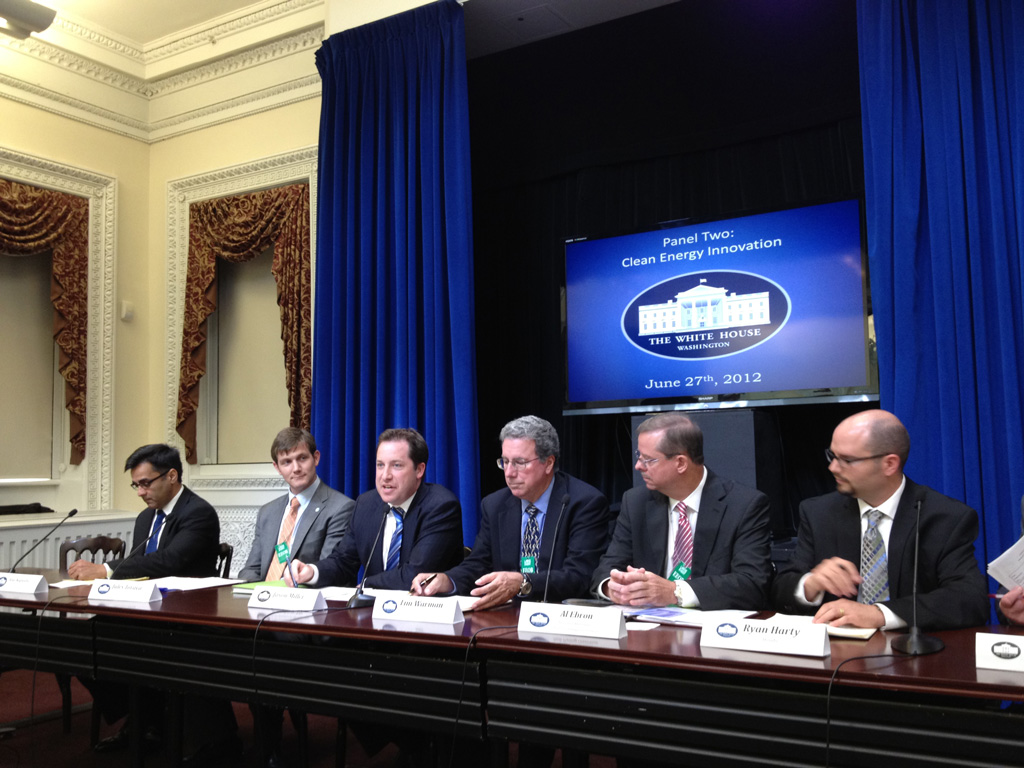This week provided 4 important reminders of why we need standards that require the auto industry to build cleaner, more fuel efficient cars and trucks and the benefits these standards will bring for our health, economy and environment.
Court upholds endangerment finding
On Tuesday, the United States Court of Appeals for the District of Columbia Circuit affirmed the U.S. Environmental Protection Agency’s (EPA) finding that carbon pollution and global warming constitute a threat to public health – the finding that led EPA to propose the first ever carbon emissions standards for cars and trucks. Opponents had argued that EPA was operating under a faulty interpretation of the Clean Air Act and improperly relying on assessments of climate science from a variety of sources. The Court dismissed these arguments, often repeated by climate deniers like VA Attorney General, Ken Cuccinelli, outright saying, “EPA’s interpretation of the governing Clean Air Act provisions is unambiguously correct.”
The court went a step further in support of the agency’s scientific analysis, adding, “EPA simply did here what it and other decision makers often must do to make a science-based judgment. This is how science works. EPA is not required to re-prove the existence of the atom every time it approaches a scientific question”.
The question of EPA’s ability to regulate vehicle carbon emissions is put to rest!
The American auto industry is back…
Yesterday, I attended a White House event celebrating the remarkable resurgence of the auto industry. The event featured leaders from the auto industry, labor, and local communities discussing the role of the proposed fuel economy and emissions standards, set to be finalized this summer, in job creation in the automobile and supply chain communities. Speakers emphasized how the standards will drive industry to innovate and develop transformative automotive technologies. Mike Gamella from UAW Local 1250 told the story of how Ford’s Eco-Boost technology – which uses conventional technology to maximize efficiency – has helped revitalize production at his plant in Cleveland, Ohio, and is helping to revitalize the city.

We need to hear more stories like Mike’s, and in future years there may be hundreds of thousands of them. On Tuesday, the Blue Green Alliance (of which UCS is a member) – released a new report, Gearing Up: Smart Standards Create Good Jobs Building Cleaner Cars showing that up to 570,000 American jobs will be created by 2030 as a direct result of the administration’s proposed 2017-2025 fuel economy/global warming pollution standards. This includes 50,000 new jobs in light-duty vehicle manufacturing and assembly alone. In addition to the jobs created, the study reaffirms that the standards will save drivers significant money at the pump, help reduce oil use, and open new markets abroad for U.S. automakers. More good news!
Meanwhile on Capitol Hill
But turning to the House of Representatives reminds us that we haven’t won this fight just yet. In deliberations over the annual appropriations for EPA this week, Republicans on the House Appropriations committee proposed an amendment that would prohibit EPA from spending money on developing or finalizing global warming pollution standards for vehicles after model year 2016. The amendment passed by a vote of 26-18. Fortunately, this House action is not likely to make any headway in the Senate, but it’s a startling reminder that we have to continue fighting for clean car standards.
Which of these things is not like the other?? Though this vote shows the true stripes of some in the House, they are clearly out of step given the strong, diverse support for the clean car standards that we are seeing across Washington and across the country. It’s time to finalize these standards and continue taking steps to cut our nation’s oil use in half in 20 years.
